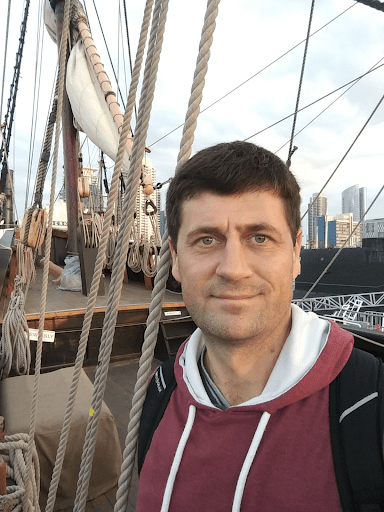
Research Highlights
Research Interests
Space-borne observations of sea level and ocean circulation.
Atlantic Meridional Overturning Circulation and its role in the regional and global climate variability.
Florida Current transport and variability, including its impact on coastal sea level.
Processes determining sea level in semi-enclosed seas.
Processes determining the near-surface salinity stratification.
Meso- and large-scale processes in polar oceans and seas.
Denis Volkov, Ph.D.
Oceanographer (University of Miami/ CIMAS), Physical Oceanography Division
305.361.4344
4301 Rickenbacker Causeway
Miami, Florida 33149
“The sea, once it casts its spell, holds one in its net of wonder forever.”– Jacques-Yves Cousteau
Dr. Denis Volkov is a physical oceanographer at the Cooperative Institute for Marine and Atmospheric Studies (CIMAS) of the University of Miami and at the Physical Oceanography Division of NOAA-AOML. His research interests include different aspects of ocean dynamics, with a particular emphasis on regional sea level and ocean circulation changes. While Dr. Volkov’s research has always relied on using spaceborne observations, in particular satellite altimetry, the desire to also be a seagoing oceanographer brought him to NOAA-AOML and resulted in sailing across four oceans.
Dr. Volkov is a principal investigator on the NOAA’s Western Boundary Time Series (WBTS) project that aims to monitor western boundary currents and water mass properties and contributes to the observations of the Atlantic meridional overturning circulation in the subtropical North Atlantic. He is also a member of the NASA Ocean Surface Topography Science Team.
Current Work
Monitoring western boundary currents and water mass properties in the subtropical North Atlantic;
Investigating the relationship between the regional sea level changes, including coastal sea level, and the Atlantic meridional overturning circulation;
Exploring the mechanisms responsible for regional heat convergence in the southern Indian and Pacific Oceans
1997 B.Sc. Hydrometeorology, St. Petersburg State University (Russia)
1999 M.Sc. Hydrometeorology, St. Petersburg State University (Russia)
2004 Ph.D. Physical Oceanography, Utrecht University (The Netherlands)
- Chomiak, L. N., Volkov, D. L., Johns, W. E., Hooper, J. A. and Smith, R. H. Deep ocean cooling and freshening from Subpolar North Atlantic reaches Subtropics at 26.5°N Communications Earth & Environment, 6(1), 235, https://doi.org/10.1038/s43247-025-02170-y 2025
Ref. 4478 - Volkov, D. L., J. K. Willis, W. Hobbs, D. A. Smeed, W. E. Johns, B. I. Moat, R. C. Perez, S. Dong, R. H. Smith, S. Speich, and T. Lamont Global Oceans: Meridional overturning circulation and heat transport in the Atlantic Ocean. In Chapter 3, State of the Climate in 2024. Bulletin of the American Meteorological Society, 106 (8), S208-2010, https://doi.org/10.1175/BAMS-D-25-0074.1 2025
Ref. 4502 - Volkov, D., Smith, R., Garcia, R. Pressure gauges and satellite altimetry ensure the continuity of the Florida Current volume transport observations Geophysical Research Letters, 52(13), e2025GL115897, https://doi.org/10.1029/2025GL115897 2025
Ref. 4498
Department of Commerce Bronze Medal 2022
For scientific achievement in the design and implementation of the complex Atlantic Tradewind Ocean-atmosphere Mesoscale Interaction Campaign.
Ocean Observing Team Award (RAPID-MOCHA-WBTS 26°N Team) 2021
For transforming understanding of Atlantic circulation with a breakthrough in observing system design, providing continuous, cost-effective measurements.
CIMAS Cash-in-a-Flash Award 2021
For outstanding work as lead advisor for RSMAS graduate students.
NOAA-AOML Certificate of Recognition 2020
For developing, constructing, and deploying the data pod system.
NOAA-AOML Certificate of Appreciation 2018
For successfully leading the 2018 IO7N Repeat Hydrography cruise in the Indian Ocean, closing a 23-year gap in data from this region and completing 124 CTD casts to inform studies of climate, weather, and ocean chemistry.